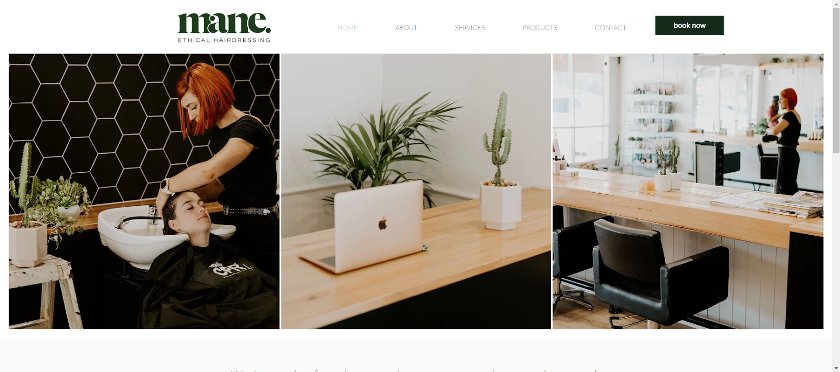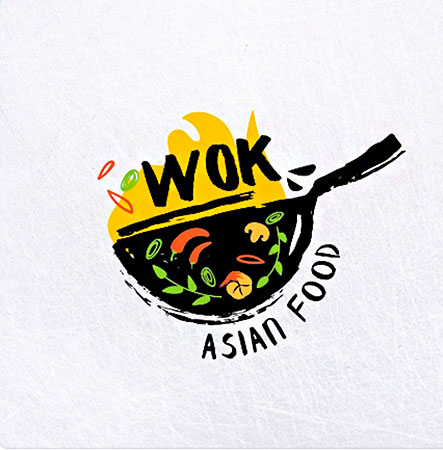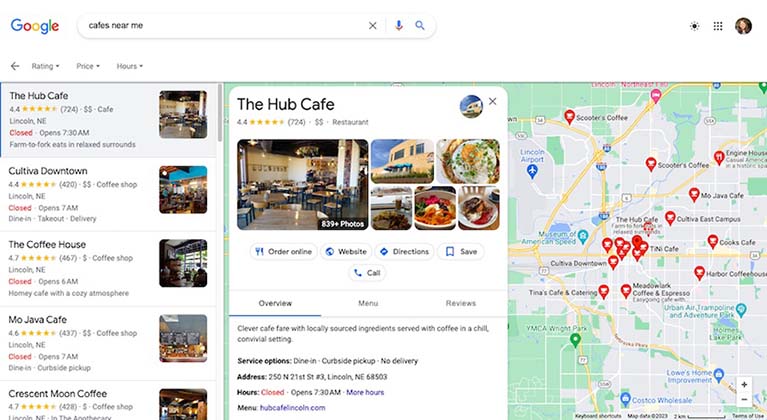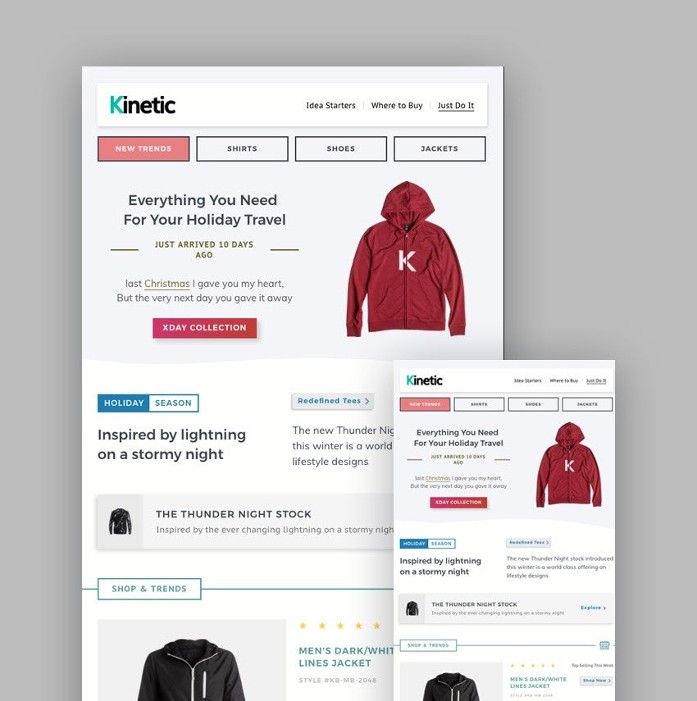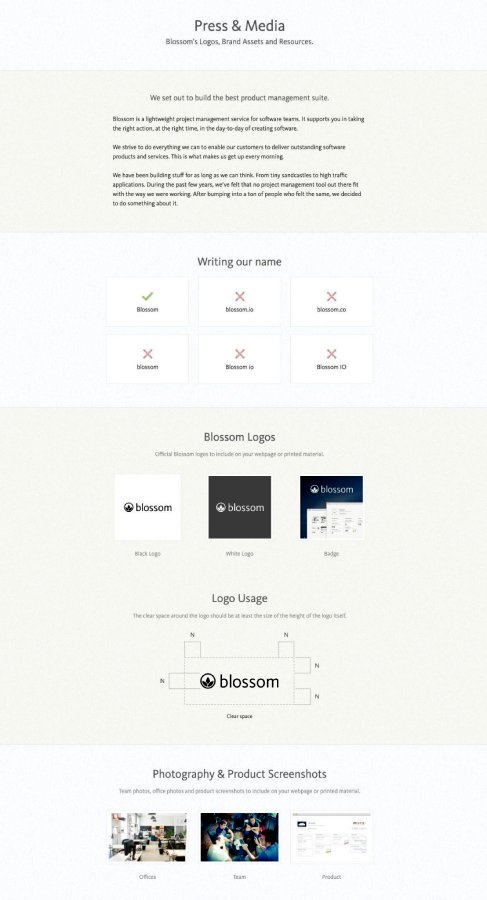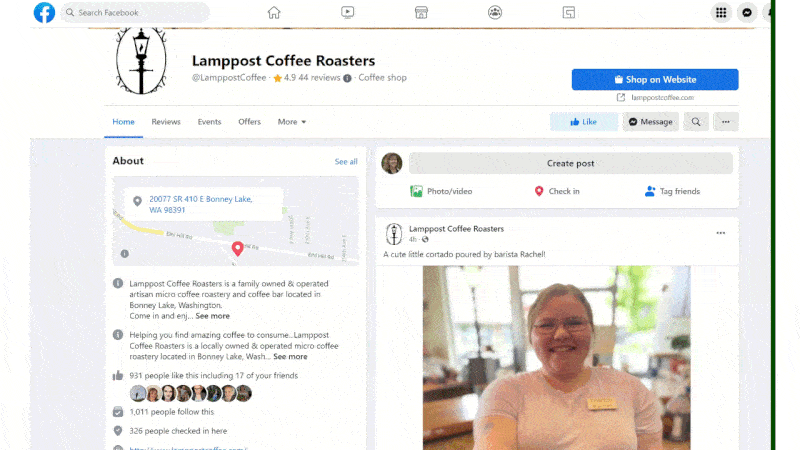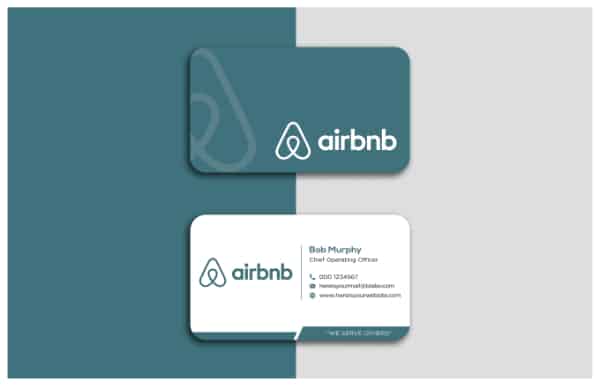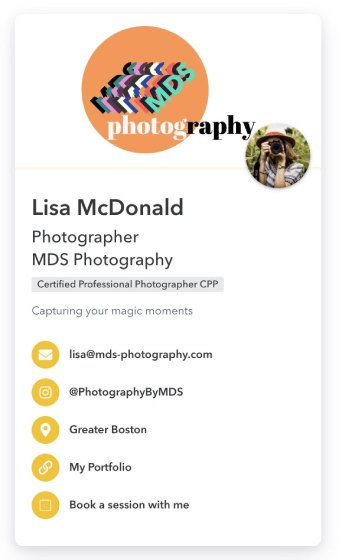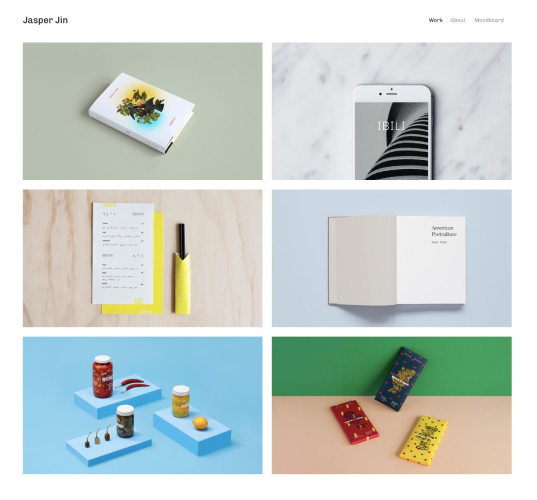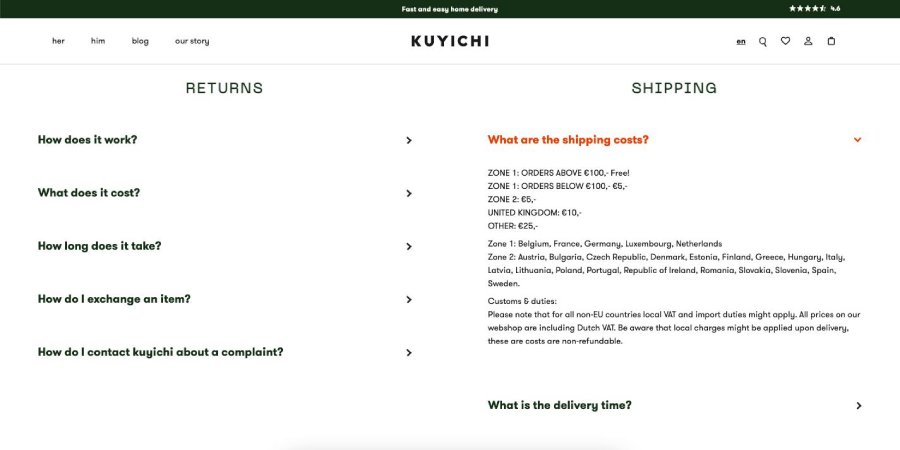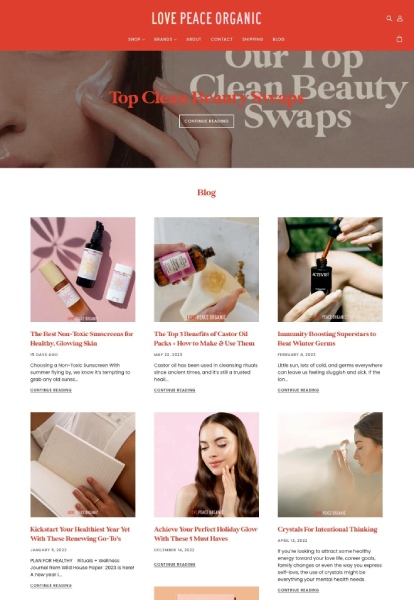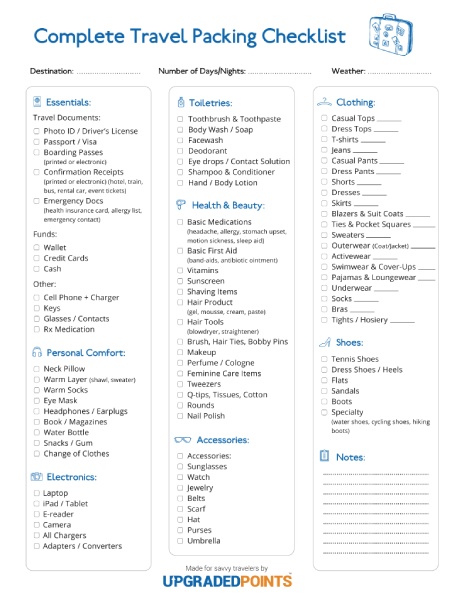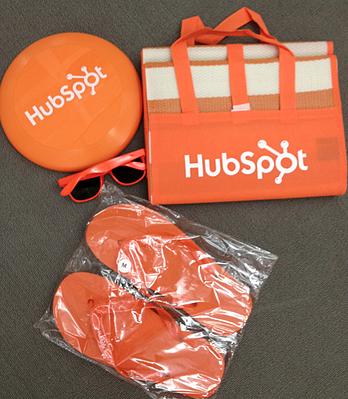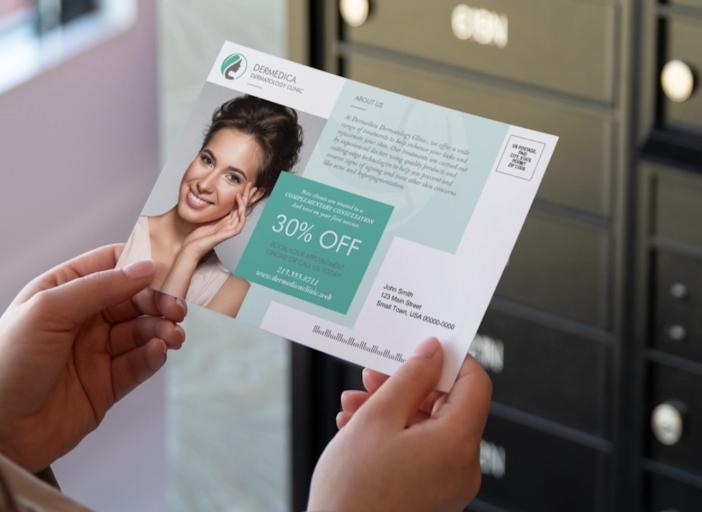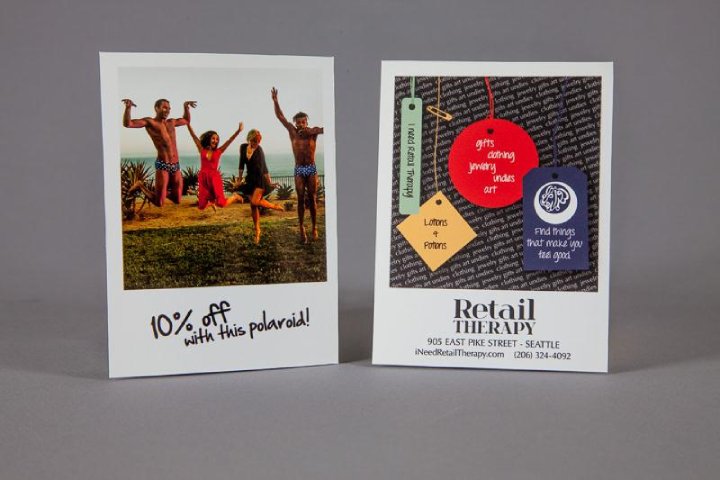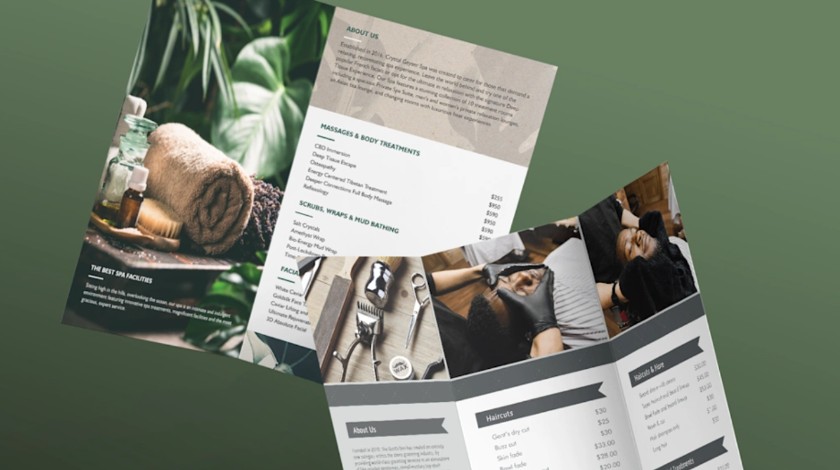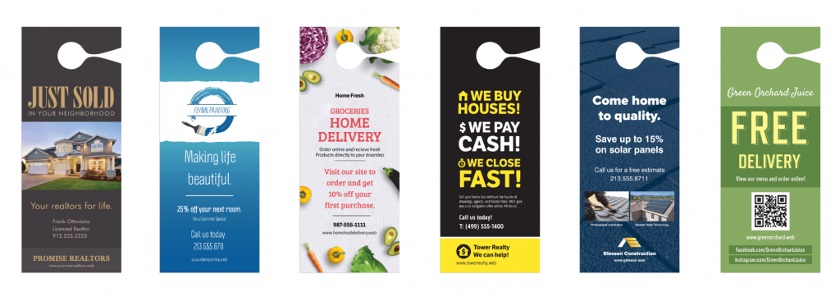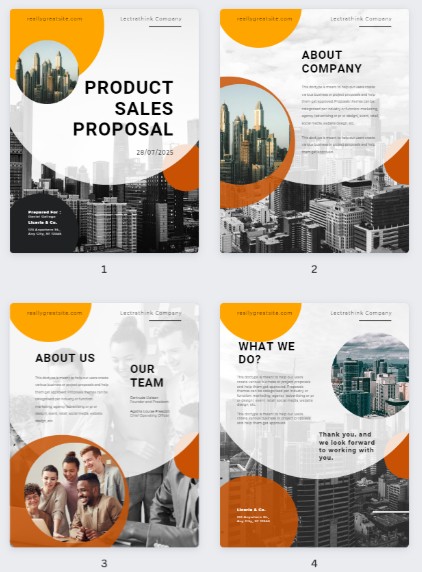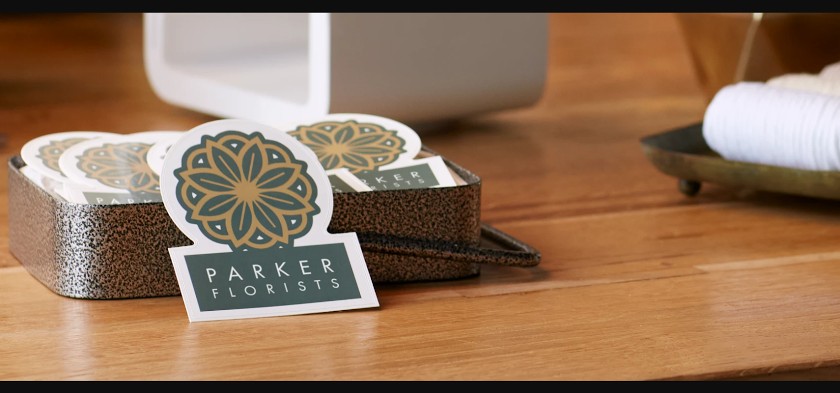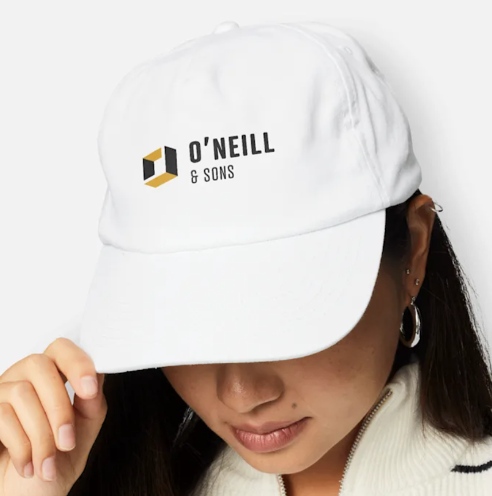When it comes to marketing your small business, a diverse approach always works best. It’s always most effective to cover as much ground as possible, using both online and offline marketing materials—from websites to direct mail and more—to build a solid brand presence. In fact, using various marketing methods can be up to three times more effective in generating profit.* That said, here are 24 effective marketing materials for small businesses you can use.
1. Business Website
Best for: Every small business wanting to build a hub for its promotional tactics
An example of a local business website created with Wix (Source: Mane)
A small business website is the most valuable marketing asset your brand can have today. With a website, you have a marketing asset that works to promote your small business 24/7/365 in a way that other small business marketing materials aren’t able to.
Your business website will be the hub for all your advertising and marketing campaigns. For example, including quick response (QR codes) on your business card or a postcard mailer can bring the recipient directly to a specific landing page, online store, or your appointment booking software. You’ll need a tool to generate QR codes, but they’re inexpensive and easy to use.
For your best chances of success, your website should be professional, easy to navigate, and optimized for search engines. The best website builders for small businesses, like Squarespace and Wix, make it quick and easy to build a site that looks professional. These site builders also have the features and tools you need to customize your site, plus search engine optimization (SEO) tools to ensure it can be found online.
Pro tip: Building a website is one of the best things you can do to build a positive online presence. Learn other ways you can build your business’ brand presence online and offline.
2. Business Logo
Best for: Any and small businesses wanting to build a memorable brand
A sample logo for a restaurant designed by Canva (Source: Canva)
Beyond having a website, another essential asset you’ll need for promoting your brand is a logo. Brand logos are one of the most basic marketing materials for small businesses—in fact, 75% of consumers recognize a brand from its logo, making it the most important brand identifier. Logos give your business a visual identity the public can distinguish and recognize. Plus, they can communicate certain personalities, traits, and values about your brand.
Having a logo is one of the simplest and most effective ways to stand out from the competition, especially in today’s visual-centric digital world. And it doesn’t need to be complicated since countless websites for logo design have made the process easier than ever.
3. Google Business Profile
Best for: Increasing your website’s online search rankings and boosting your site’s search engine optimization (SEO)
An example of a Google Business Profile
Creating and managing a Google Business Profile is a must for every small business—but most especially for businesses that rely on local foot traffic. For one thing, it provides more ways for customers to discover your business online. Google Business Profiles are often displayed alongside organic search results, and it’s how local businesses can get into Google Map listings.
It’s also a contributing ranking factor to help your website rank higher in Google search, especially if you get positive reviews on your profile. You can also add photos, videos, and information to your profile to make it more search- and user-friendly. Best of all, creating and maintaining your profile is totally free.
Pro tip: Online directory listings in Google, Bing, and other directories can benefit your website’s search engine optimization (SEO) significantly. Learn the best business directories to list online to help your site move up in rankings.
4. Email Newsletters
Best for: Increasing sales, building customer loyalty, and nurturing prospects over time
Year in and year out, permission-based email marketing provides some of the best returns on marketing investments. The Litmus 2021 State of Email report revealed that email marketing is the most effective marketing tactic overall, with 79% of marketers listing it as one of their top three most important tools. The top types of emails used include newsletters, welcome emails, product-focused, sales or promotions, and events.
In terms of effective marketing materials, email newsletters provide both short- and long-term benefits. For example, you can send email blasts to inform your audience of a special offer or time-limited sale, but you can also use them to keep your brand memorable and build relationships with prospects.
Pro tip: To ensure your email newsletters keep your brand top of mind, be sure to include a custom branded letterhead in all of them, which you can easily design through a design platform or on your email marketing software. For inspiration, look through our list of creative business letterheads.
5. Press Kit
Best for: Increasing your chances at landing press coverage
An example of a digital press kit hosted on a website
(Source: Blossom)
Press kits are a tried-and-true marketing material for small businesses wanting to generate publicity when reporting a story to the media. They are the main resource journalists and media professionals turn to when writing about your brand, and are, therefore, a great way to boost your chances of landing press coverage. Plus, press kits are also a great way to take control of the public narrative about your brand.
Press kits can be physical or digital, but they always contain the most essential information about your brand, from your basic details (name, contact number, etc.) and brand story, to your brand values, team members, and more. They also aren’t too complicated to make—you can use a ready-made press kit template, then edit it, adding your own information, and publish it on your website where it’s easily accessible to the press.
6. Social Profiles
Best for: Increasing brand awareness, online engagement, driving website traffic, and access to paid social
Social profiles expand a small business’ brand presence online.
While creating a social profile for your business is great, it isn’t enough to maximize your brand presence—you’ll also need to use social media marketing strategies. For example, Google recommends that your website have links to your social profiles, and the additional traffic you can generate from social media can also positively affect your rankings in online search.
With social media profiles, your business can communicate its brand identity to a broader audience. Social profiles also provide another avenue for promoting your products and services. Plus, you’ll need social business pages to access paid social advertising platforms, which can be very effective tools for driving website traffic, brand awareness, and sales.
Pro Tip: Creating marketing materials requires the right tools. These tools comprise a significant portion of your marketing technology stack, known as a martech stack. Learn how to build a martech stack with our comprehensive guide.
7. Printed Business Cards
Best for: Staying top of mind following in-person sales calls and networking engagements
8. Digital Business Cards
Best for: Modern or tech-related businesses wanting to leave a memorable impression
An example of a digital business card
(Source: Blinq)
You read that right—beyond physical business cards, companies are increasingly opting for digital business cards, which are essentially online versions of regular business cards. They can take the form of a mini single-page website, an interactive photo, or even a short video. These can be accessed by scanning a QR code or clicking on a link.
Digital business cards offer a dynamic and creative way of creating lasting impressions. They also signal that your business is keeping with the times, and they can hold more varied content—think videos, GIFs, and clickable links. Plus, they’re super cost-effective and easy to create using tools like email signature generators.
Get an idea of what to include on your digital business card by checking out examples of professional email signatures and what makes them effective.
9. Digital Portfolio
Best for: Creative freelancers, artists, or boutique design studios
An example of a portfolio website template designed by Squarespace
(Source: Squarespace)
In line with digital business cards, digital portfolios are another great way to market your small business and gain potential new leads. Portfolios prove your business’ expertise in your area, and showcasing your past work helps visitors know they’re in good hands. Creating a digital portfolio can be as simple as adding a new page on your website, then uploading or adding links to your past work.
Digital portfolios are especially helpful for small business marketing materials for those in the creative space, such as boutique design studios, freelance graphic designers, or artists. Showcasing past work is the quickest and easiest way to let visitors know of your exact skills and capabilities, and digital portfolios are the best medium to do just that.
10. FAQ Page on Your Website
Best for: Boosting your SEO and establishing your brand credibility
This small business website uses drop-downs to organize their FAQs. (Source: Kuyichi)
Every business has its own set of frequently asked questions (FAQs) customers ask. For cafes, customers will probably ask about your menu items or business hours the most, while service businesses will likely get dozens of questions about rates or coverage areas. Either way, one of the most underrated but effective marketing materials for small businesses is to set up a FAQs page on your website to cover all of these questions.
FAQ pages are effective small business marketing materials for three reasons. They show that your business actively listens to customers, establishes you as an authority in your field, and helps boost your on-page SEO. To create an effective FAQs page, catalog the most common questions you receive, then type them out along with your answers on a separate page on your website. Then, do keyword research and optimize your FAQ content for search engines.
11. A Blog
Best for: Boosting SEO and starting content marketing strategies
A blog is one of the best small business marketing materials you can have—they’re also easy to set up and maintain.
(Source: Love Peace Organic)
Having a blog is one of the best low-cost marketing materials for small businesses of every type and industry. Blogs are one of the foremost strategies for content marketing as they establish your authority and credibility, and they provide many opportunities for SEO. Many website builders have built-in blog pages you can add to your website in a few clicks, or you can create one from scratch.
Pro tip: Ready to start building your blog? Read through our guide on how to start a business blog, plus blog ideas to help you get started.
12. Free E-book or Checklist Downloads
Best for: Establishing your brand credibility and authority
Downloadable content like checklists or e-books lend your brand credibility and authority. (Source: Upgraded Points)
Blogs develop your brand’s authority online, but a great way to build on that even further is to offer your audiences free downloadable content—especially if it’s helpful or informative. For example, offer e-books or checklists with useful information about your subject area, e.g., if your business sold camping gear, a downloadable checklist of things to bring when camping would likely be beneficial to your target audience.
You could host your e-book or template on your website, most ideally within a blog post covering the same subject. When creating downloadable content, make it genuinely helpful and informative to your audience—you want your audience to regard you as a trustworthy, credible figure to establish your brand authority.
13. Company Explainer Video
Best for: Growing businesses looking to establish a brand presence

Company explainer videos tell the audience about who you are, what you value, and more in a creative way.
(Source: The Marketing Desks)
You’ve probably heard that video is one of today’s most-used marketing assets. This is certainly true, with 91% of businesses using video in their marketing in 2023—higher than ever before. Video works because it is inherently attention-grabbing and engaging, and it allows far more possibilities for human connection than words or images. For example, visitors are far more likely to understand a new product after watching a video tutorial about it vs reading a manual.
It’s for this reason that company explainer videos are one of the most useful marketing materials for small businesses. While they’re a great asset for businesses of any size, they’re especially helpful for growing businesses in the midst of establishing their brand presence. Videos are a great way to easily let audiences know about who you are and what you do in a creative, authentic, and visually stimulating way.
14. Drone Videos of Your Location
Best for: Showing off a visually impressive space or location

Drone videos can show off stunning angles of your location. (Source: Pointers Travel)
Videos are endlessly valuable in marketing. As illustrated above, they’re a great medium for showing a narrative about your company’s identity, but they’re also excellent for showcasing high-quality and dynamic visuals. This is especially helpful if what you’re marketing has a high visual value—for example, an events space or a tourist resort—and uses it as a main selling point.
If you have a beautiful, visually striking space, there’s no better way to show it off than with an aerial or drone video. Drone videos stand out for their ability to show off stunning, high-quality outdoor views and angles of any location that regular video footage just can’t capture. They can also be used in just about any marketing asset, from your website’s home page to content for social media, and are a great way to help you stand out from others.
15. Event Kits
Best for: Keeping your brand top-of-mind after events
Giving away free event kits is a sure way to be remembered even after the event. (Source: HubSpot)
You probably already know that events are a very effective way to market your business and boost your brand presence, whether you’re building one from scratch or acting as a sponsor for an existing one. An extra step to better retain your brand in audiences’ minds is by giving away branded event kits to attendees at the event. People generally attend events to have an enjoyable time, and everyone loves receiving free gifts.
Your event kit could include flyers about your brand, plus helpful merch like branded pens and notebooks, or you can even stand out with something unexpected like power banks or speakers—just be sure you follow your event’s theme and tone. Bonus points if you give them away in a branded container, like a branded box or tote bag. Your recipients will definitely be keeping your brand in mind until they return home.
16. Postcards
Best for: Reaching new customers through traditional direct mail campaigns to generate brand awareness and sales
17. Flyers
Best for: Increasing brand awareness, providing product and service education, and generating sale
Flyers are frequently used to showcase individual products, services, or events, such as classes or open houses. Restaurants often use flyers as menus, especially in the pandemic era, where disposable menus can be preferable to re-usable menus that must be disinfected after each use.
When deciding whether flyers are right for your business, consider how you will distribute them. For example, will the flyer be handed out on the streets, posted on public bulletin boards, or left at checkout for recent customers? For more ideas, check out these 20 business flyer templates you can use to showcase your next event or promote your services.
18. Brochures to Present Your Brand or Menu
Best for: Showcasing a brand or menu in greater detail long after the initial sales call or initial visit
Brochures are also among the most versatile marketing materials for providing information about your business in general or showcasing product or service menus. They can be sent via direct mail, displayed inside your business, distributed at the point of sale, handed out at networking events or trade shows, placed in display signage, and more. Check out these brochure examples for inspiration.
Brochures are effective marketing materials for several different types of businesses. For example, businesses wanting to attract travelers can leave them at local hotels or tourism centers. Salons and spas often use them to showcase their service menus, while caterers might create brochures to promote various catering options or packages. Find out how to create a brochure and get more great business brochure design ideas.
19. Door Hangers
Best for: Local businesses looking to increase brand awareness and drive sales
Door hangers are geotargeting marketing tools designed to hang on doorknobs. They are effective marketing materials for local businesses offering residential services, such as landscaping, dog walking, pet-sitting, home delivery services, and so on. For example, a lawn care company may leave door hangers at homes that need their lawn mowed.
Door hangers can be used broadly, distributed to everyone within an area, or based specifically on an observed need (e.g., lawn care or house painting). With VistaPrint, you can choose from various sizes, shapes, and designs, all of which can be customized with your photos, logo, and text and then printed for as little as $64 for 100 from VistaPrint.
20. Booklets & Catalogs
Best for: Showcasing a library of products or an extended overview of a brand or its services
Booklets are powerful marketing collateral for expensive products or services, multi-product catalogs, brand magazines, and extensive offerings, such as educational programs. They’re more expensive than some other types of print collateral, so they are best for goods or services that involve a high amount of consideration from consumer buyers.
Unlike some of the other printed collateral listed above, booklets cover a wide range of usage (e.g., presentations, catalogs, magazines, corporate brochures, and so on). Compare the cost of printing brochures and booklets in our list of the best direct mail services.
21. Presentation Folders
Best for: Storing and consolidating other marketing collateral for your client’s easy reference
Presentation folders give businesses a professional way to present information and documents. Plus, because they are card stock, they help to protect other marketing collateral. Folders make your brand look more credible to external and internal stakeholders. For example, you can use presentation folders for client presentations and proposals, or for new hire welcome materials.
22. Banners & Signage to Draw Attention
Best for: Drawing attention to a storefront, which builds brand awareness, sales, and referrals
23. Stickers
Best for: A variety of purposes, such as branding, marketing, advertising, and promotions
While often overlooked, stickers are among the most affordable and versatile marketing tools for small businesses. They can be used in various ways, from business promotional materials distributed to customers, to branded packaging.
Stickers can be placed just about anywhere. Put them on products, in-store windows, or anywhere people will see them. AnyPromo and VistaPrint are the best places to buy custom stickers to set your packaging and products apart, especially if you want to start with lower quantities.
24. Branded Apparel
Best for: Increasing brand awareness and word-of-mouth marketing
